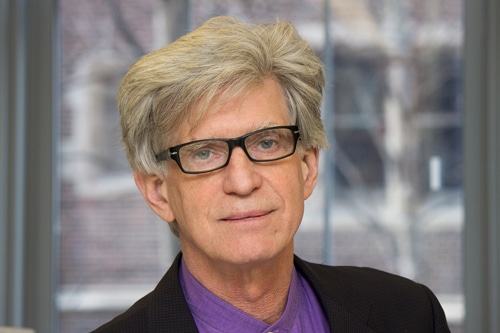
In 1985 Dr. John Q. Trojanowski, with a background in pathology and neuropathology decided to focus his knowledge and experience on the study of Alzheimer’s. When he discussed this decision with his mentors at The University of Pennsylvania Perelman School of Medicine, he was advised to avoid the effort. At that time, so little was known about Alzheimer’s that his mentors saw Alzheimer’s research as a “swamp”. Thankfully, Dr. Trojanowski saw Alzheimer’s research as a “challenge and an opportunity.”
For over three decades Dr. Trojanowski and his wife Dr. Virginia Man-Yee Lee have been conducting Alzheimer’s research. They have made three major discoveries in the past 25 years that have become strong foundations for those working on Alzheimer’s disease and related disorders around the world. In 1991 Drs. Trojanowski and Lee determined that tau is the building block protein of neurofibrillary tangles. In 1997 they found that Lewey bodies, the hallmark pathology of Parkinson’s disease, are formed by alpha-synuclein. As nearly 50% of those with Alzheimer’s have Lewey bodies that contribute to their cognitive deficits, it’s critical for researchers to understand their cause. And in 2006 they discovered the pathological protein deposits in ALS (amyotropic lateral sclerosis) and FTD (frontal temporal degeneration) are formed by TDP-43, a multi-fuctional DNA and RNA binding protein that is present in large numbers of Alzheimer’s patients and contributes to the cognitive deficits they experience. In 2015 a very deserving Dr. Trojanowski was the recipient of the American Association of Neuropathologists Award for Meritorious Contributions to Neuropathology.
Dr. Trojanowski has been quick to point out how important it is for him, his wife, and their colleagues to collaborate in this effort. “It takes a team to solve Alzheimer’s and other dementias” stated Dr. Trojanowski, “you’re not going to do it in an individual laboratory.” Dr. Virginia Man-Yee Lee went on to say “we work with people from the Departments of Neurology and Psychiatry at Penn Medicine, the Department of Chemistry in the School of Arts and Sciences at Penn Vet, at the Penn Memory Center as well as The Children’s Hospital of Philadelphia. Particularly because of the proximity of the schools and centers it really facilitates a lot of collaboration.”
CART has had a long and valued relationship with Dr. Trojanowski. Dr. Trojanowski received the only CART grant awarded in 2003, in the amount of $250,000. For the past ten years, Dr. Trojanowski has generously volunteered as the Chairperson of the CART Scientific Review Panel. This panel vets and advises the CART Board on the grant requests received each year. As CART giving has grown, and the number of annual CART research grants increases, Dr. Trojanowski’s leadership in this effort is truly appreciated.
CART would like to express its deep appreciation to Dr. Trojanowski and his colleagues, and congratulate him on his research breakthroughs over the past 25 years at The University of Pennsylvania. Before it was conventional to do so, Dr. Trojanowski and other Penn researchers worked together to develop therapies to prevent and treat Alzheimer’s, a disease that causes memory loss and confusion but is yet to have a cure. CART is grateful and honored to be a small part of this success story.

